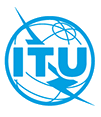Implementing the EPR Concept in Policies and Regulations for the Sound Management of E-waste – Circular Economy for Electronics, Part 4
| Project No | 9GLO21118 | |
| Title | Implementing the EPR Concept in Policies and Regulations for the Sound Management of E-waste – Circular Economy for Electronics, Part 4 | |
| Description |
In line with the current Programme of Work (2021 – 2023) on a Circular Economy for Electronics of the Telecommunication Development Bureau (BDT) of ITU, this project, a first step in a longer-term policy-level collaboration between ITU and UNEP, will support Botswana, Dominican Republic, Namibia, Rwanda, The Gambia, and Uzbekistan in the application of the extended producer responsibility (EPR) principle for e-waste management – a commonly adopted policy approach. The project will build off the various normative documents which provide clear guidance regarding issues such as policy development, enforcement, financing e-waste collection and recycling and effective EPR. These documents, such as the ITU Policy Practices for E-waste Management and its Handbook for the Development of a Policy Framework on ICT/E-waste and UNEP’s Global Environment Outlook, Global Chemicals Outlook I & II, Global Waste Management Outlook, the Africa Waste Management Outlook and the Central Asia Waste Management Outlook are ready and available to guide project implementation. The project will also build on the first phase of e-waste policy and regulatory development technical assistance provided by ITU in Dominican Republic and Namibia, and by UNEP in Botswana, Rwanda, Uzbekistan. |
|
| Area of Action |
Regulatory & Market Environment Least Developed Countries & SIDS |
|
| Status | Implemented | |
| Time Frame | From 15/9/2021 To 31/12/2022 | |
| Beneficiary Countries | Botswana (Republic of), Dominican Republic, Gambia (Republic of the), Namibia (Republic of), Rwanda (Republic of), Uzbekistan (Republic of) | |
| Implementing Agency | International Telecommunication Union (ITU) | |
| Cooperation Agency | United Nations Environment Programme (UNEP) | |
| Financial Scale (CHF) | 100'000 - 500'000 | |
| Achievements |
The project reached many actors from the public and private sectors and from civil society. Ministries of ICT, ICT regulators, Ministries of Environment and environment agencies worked together, bringing along other arms of Government such as customs, industry and trade departments and municipalities. The project involved producers (mostly importers) of electrical and electronic equipment, collectors, and recyclers, from the different countries in various consultations on policy, strategy and regulation drafting. The reach was significant with 11 consultation workshops across the countries involved in the project. This resulted in over 300 individuals being involved in the consultation process on the respective policy documents in each country, in-person. The high-level of reach and audiences captured by the project has led to an increased understanding of mid-level management representatives in the participating public, private sector, and civil society sector organisations. It is expected that the short-term impact of this reach will have led to the change in behavior of representatives towards the regulation of e-waste management, increased capacity and their voices having been during the policy development process. Despite the expected short-term impacts, the project was policy-based and therefore it is expected that many of the impacts from the policy development process in the beneficiary countries will hopefully lead to a more organised e-waste management system with appropriate roles and responsibilities being assigned to the different actors. Every document that was produced under the project (excluding legally binding document such as regulation) included an implementation action plan with clear roles and responsibilities and timeframes for actions spelled out. |
|
|
Request more information about this project |
||


